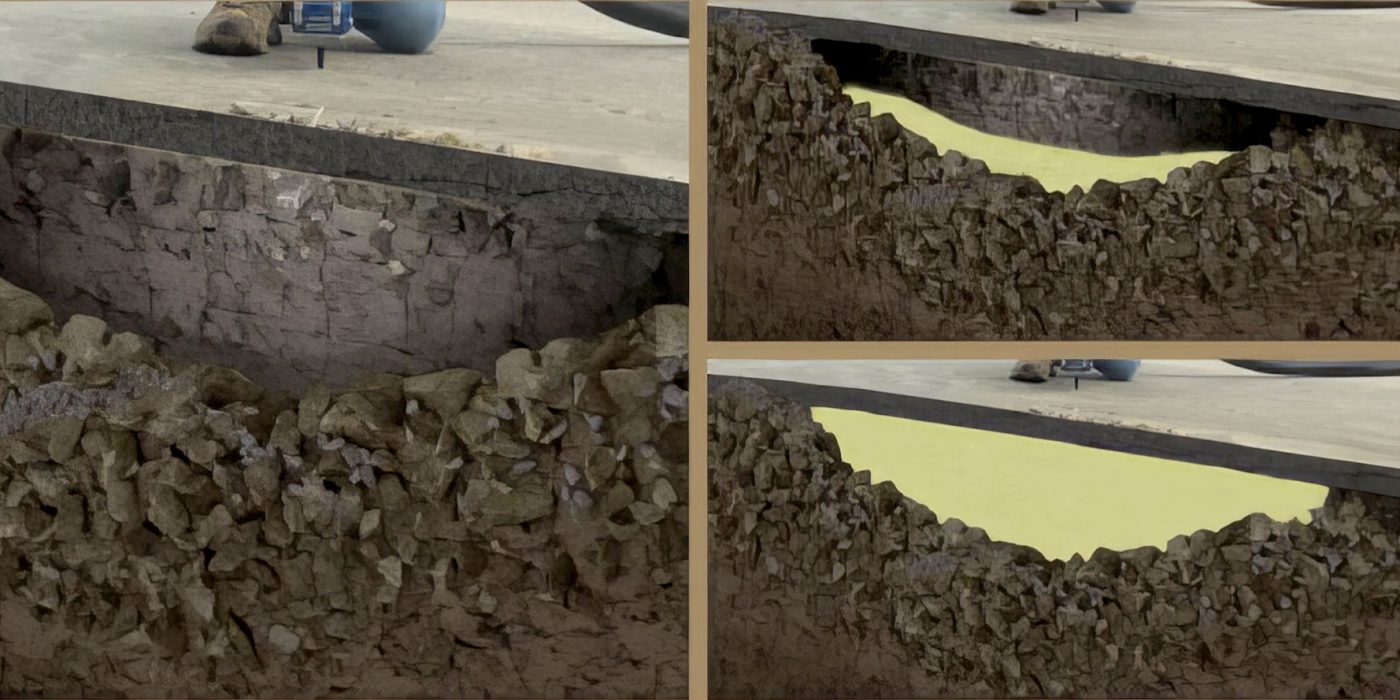» Lightweight - Stabilizes Without Adding Unwanted Weight to the Substrate
» Minimal Disruption - Less Invasive and Cures More Quickly Than Other Methods Such as Mudjacking
» The Poly Foam Expands in All Directions of the Injection Site Resulting in More Stable Sub-Soils
» Cost Effective and Less Downtime Required
» Eco-Friendly - Made from Recycled Material and Will Not Pollute Surrounding Soil
» Strong and Long Lasting - Consolidates All Soil, Rock, and any Organic Material Under the Slab
» Stability - Unlike Mudjacking, Polyurethane Foam Won’t Erode, Shrink, or Settle Over Time
» Polyurethane Void Filling Foam Supports, Lifts, and Levels Concrete Slabs
